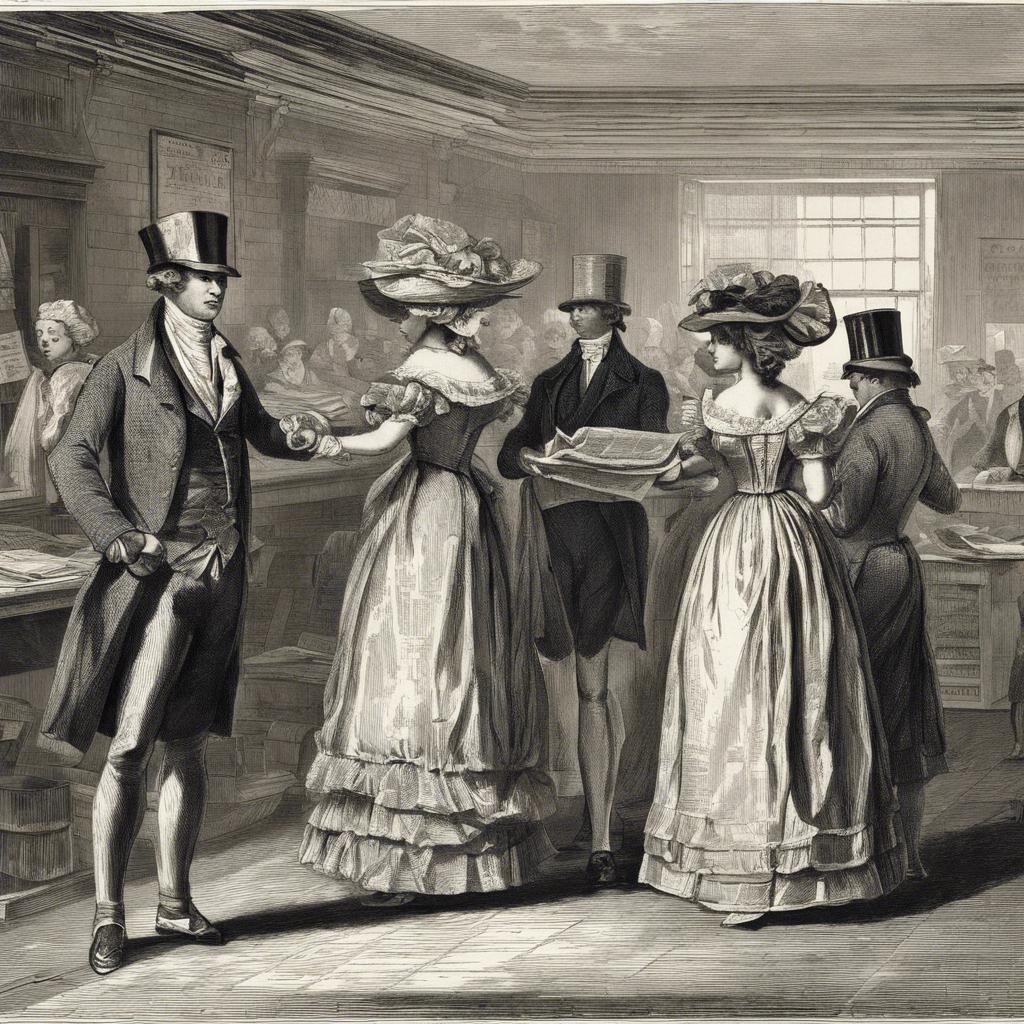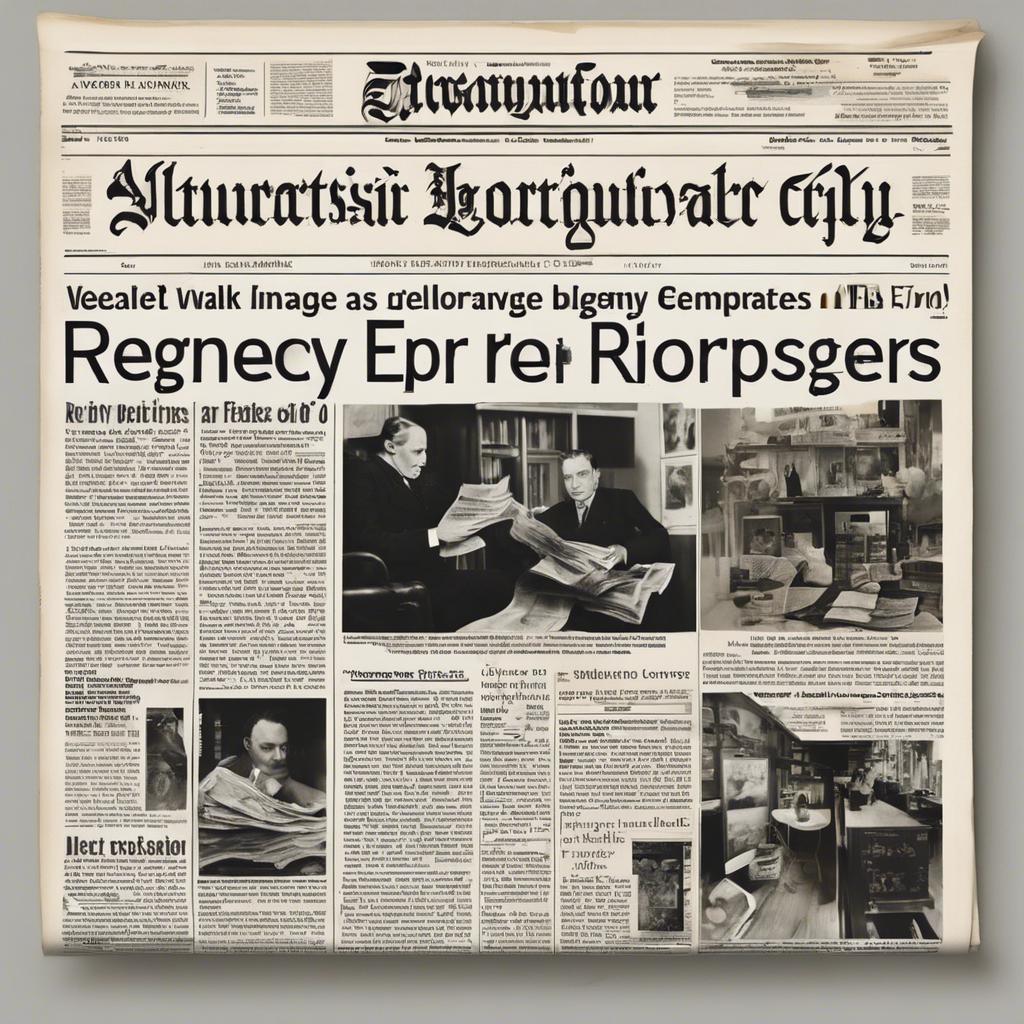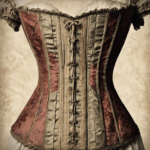In the dazzling world of Regency-era England, newspapers served as a crucial tool for shaping public opinion, disseminating information, and providing a window into the political and cultural landscape of the time. Through the pages of these publications, citizens were informed of significant events, societal trends, and the latest scandals gripping high society. Join us as we delve into the fascinating world of Regency-era newspapers, exploring their impact on the daily lives of the people and shedding light on the power of the press during this dynamic period in history.
Step Into the World of Cheryl Bolen
Dive into the enchanting stories of love, intrigue, and elegance set in the Regency Era. Cheryl Bolen's novels offer timeless romance and captivating tales that will leave you wanting more.
Explore Cheryl Bolen's Books Now
The Impact of Regency Era Newspapers on Society
Newspapers in the Regency Era played a vital role in shaping society and disseminating information to the masses. These publications were not only a source of news but also served as a platform for political debates, social commentary, and entertainment. With the rise of literacy rates during this period, newspapers became increasingly popular among the educated classes, influencing public opinion and spreading ideas.
One of the key impacts of Regency Era newspapers on society was their role in political mobilization. Newspapers provided a medium for politicians and activists to communicate their ideas and rally support for various causes. Articles, editorials, and letters to the editor were used to sway public opinion, garnering support for political movements, reforms, and revolutions.
Furthermore, newspapers in the Regency Era also helped shape cultural norms and values. They covered a wide range of topics such as fashion, literature, and etiquette, influencing trends and behaviors among the upper and middle classes. Advertisements for goods and services featured in newspapers also stimulated consumerism and promoted a burgeoning consumer culture.
Prominent Themes and Subjects Covered in Regency Era Newspapers
The Regency Era, spanning from 1811 to 1820, was a time of significant political and social change in England. Newspapers of the era reflected these changes through their coverage of various themes and subjects. One prominent theme that dominated headlines was the Napoleonic Wars, which had a major impact on European politics and society.
Key themes and subjects covered in Regency Era newspapers:
- Political news and debates
- Social issues and reforms
- Literature and arts
Another common subject in Regency Era newspapers was the monarchy and the activities of the royal family. Readers were eager to learn about the latest events and gossip surrounding King George III and his successors. Additionally, newspapers often featured coverage of high society events, providing readers with a glimpse into the glamorous world of the English elite.
Influence of Regency Era Newspapers on Politics and Public Opinion
During the Regency Era, newspapers played a crucial role in shaping politics and public opinion. With the rise of literacy rates and the advancement of printing technology, newspapers became a powerful tool for influencing the masses. Here are some key ways in which Regency Era newspapers impacted politics and public perception:
-
Spread of Political Ideas: Regency Era newspapers served as platforms for political parties and figures to disseminate their ideas and agendas to a wider audience. By publishing articles, editorials, and letters to the editor, newspapers helped to spread political ideologies and shape public discourse.
-
Agenda Setting: Newspapers in the Regency Era had the power to set the agenda for public discussion by deciding which stories and issues to cover. Editors could highlight certain topics while downplaying others, influencing what the public paid attention to and how they perceived events.
-
Public Opinion Formation: Through reporting on current events, newspapers helped to shape public opinion on key political issues. By framing stories in particular ways and providing analysis and commentary, newspapers could sway public sentiment and influence the direction of political debates.
Regency Era newspapers were powerful agents of political influence, helping to shape public opinion and drive political change. Their role in shaping the discourse of the time cannot be understated.
Recommendations for Further Research and Analysis on Regency Era Newspapers
In order to further delve into the world of Regency era newspapers, there are several areas of research and analysis that could prove to be fruitful. One aspect to explore is the role of women in publishing and writing for newspapers during this time. Investigating the representation of women in Regency era newspapers can provide insights into gender dynamics and the impact of female voices in shaping public discourse.
Another interesting avenue for research is the influence of political factions on the content of Regency era newspapers. By examining the political affiliations of different newspapers and analyzing their editorial content, researchers can gain a better understanding of how political ideologies were disseminated through the media during this period. This can shed light on the relationship between newspapers and political power in the Regency era.
Furthermore, comparing the coverage of significant events in different Regency era newspapers can offer valuable insights into the diversity of perspectives and biases present in the media of the time. By conducting a content analysis of newspapers reporting on events such as the Napoleonic Wars or the reign of King George IV, researchers can gain a nuanced understanding of how historical events were framed and interpreted by different publications in the Regency era.
Insights and Conclusions
the regency era was a captivating time in journalism history, marked by a surge in newspaper production and the emergence of innovative reporting techniques. The newspapers of this era served as vital sources of information, entertainment, and political discourse for the people of the time. As we reflect on the significance of regency era newspapers, we are reminded of the enduring legacy they have left on the field of journalism. Their contributions continue to inspire and inform modern media practices, serving as a testament to the enduring power of the written word.


